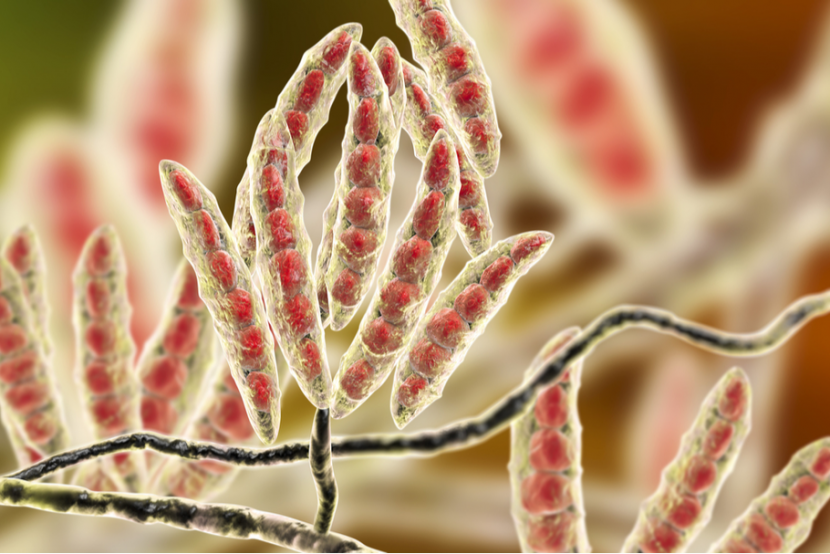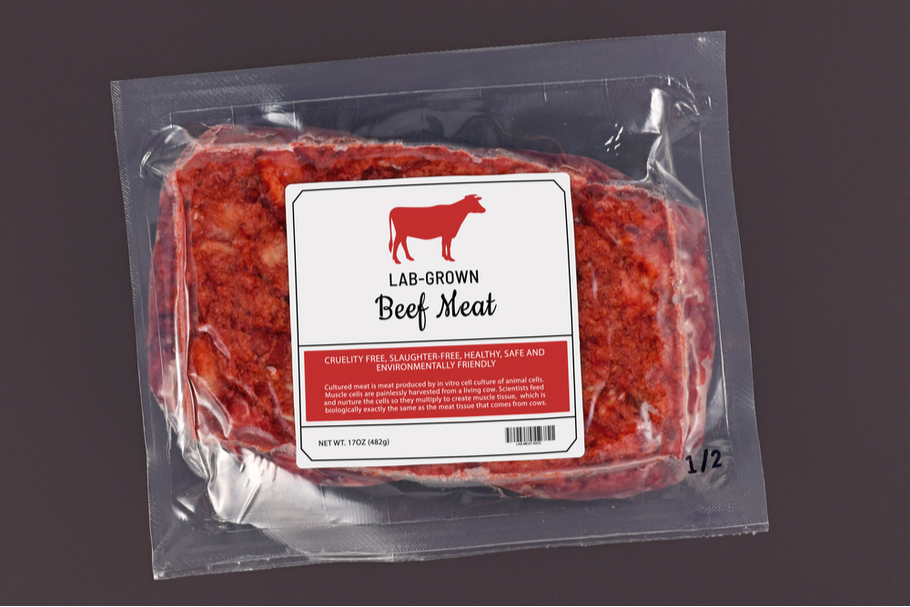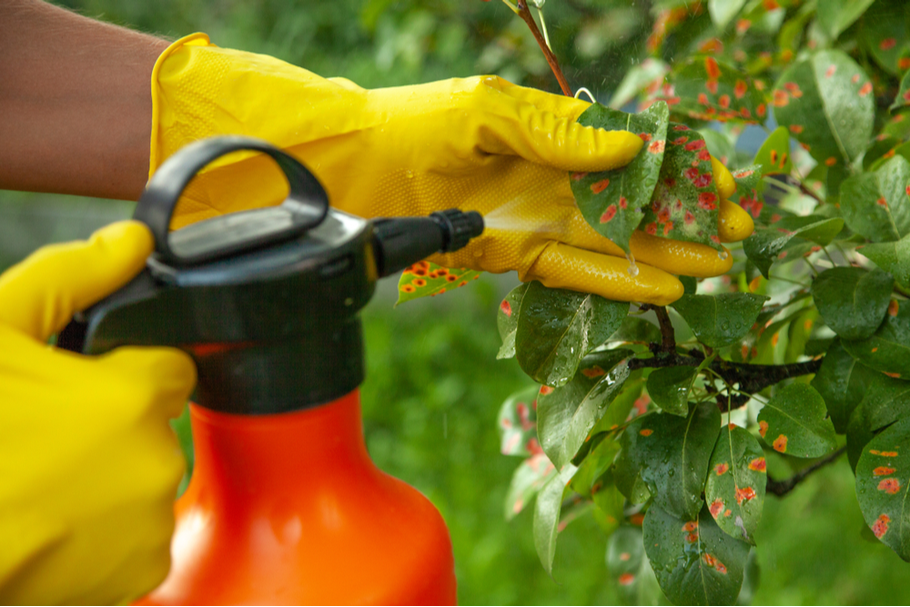Preserving Mycotoxin Biocontrol in the Face of Climate Change
By Dr. Suzanne Osborne
Climate change is a looming threat poised to drastically impact food safety. Elevated temperatures and rainfall fluctuations will increase fungal growth in crop fields, which has caused major food safety and security concerns. Several species of toxic fungi can produce mycotoxins. The consumption of mycotoxins through contaminated food can cause both acute (abdominal pain, vomiting) and chronic (kidney damage, liver cancer, death) health problems. It is estimated that 4.5 billion people are chronically exposed to mycotoxins with billions of dollars in economic loss.
Historically, mycotoxin contamination has been a major problem in tropical and sub-tropical regions where the climate favours fungal growth. The geographic distribution of toxigenic fungi will likely shift with changing climate conditions. In the past 15 years, Aflatoxin has emerged as a food safety risk in northern Italy and Eastern Europe; regions where it was previously uncommon. Environmental changes may also alter the quantity and types of mycotoxins produced.
Achieving food safety in the face of rising mycotoxin risk will require the coordinated efforts of governments, researchers, humanitarians, and food industry leaders.
Many strategies for reducing mycotoxin contamination in food already exist, including sorting technology, electromagnetic radiation, ozone fumigation, chemical control agents, sanitary storage facilities, and engineered packaging. However, many of these detoxification methods are impractical and economically infeasible in lower income countries where, ironically, mycotoxin risks are the highest.
Biocontrol has emerged as a preferred method to limit mycotoxin contamination. Biocontrol involves the pre-harvest application of non-toxigenic fungi. The biocontrol species effectively out-compete the toxigenic fungi for nutrients and infection sites. On average, the use of biocontrol agents reduces mycotoxin contamination by more than 80%. Biocontrol is simple, cost-effective, and the products can be produced and distributed locally. Several biocontrol agents for Aflatoxin are available including Aflasafe™ (Africa), AF36 Prevail (ACRPC, US), Afla-Guard (Syngenta, US), and AF-X1 2021 (Corteva Agriscience, Italy).
Despite the veneration of mycotoxin biocontrol and our knowledge of the impact of climate change on toxigenic fungal growth, the industry has failed to address the obvious question: Will climate change also impact the non-toxigenic fungi used in biocontrol?
Changing environmental conditions are just as likely to impact the growth, distribution, and competitiveness of non-toxigenic fungi. Yet, the ability of current commercial biocontrol agents to remain effective in future climate conditions has received little, if any, attention. Dr. Naresh Magan found that when two commercial biocontrol agents were subjected to temperature fluctuations they performed poorly in terms of establishment in horticultural crops. “The screening of biocontrol strains has not usually taken into account resilience under climate change conditions,” says Magan. “The commercial companies will claim [their biocontrol products] work effectively but they have never, as far as I know, actually been tested for conservation of efficacy. They usually don’t want to talk about this as they don’t have the information.” Failure to address this issue feels alarmingly short-sighted.
Efforts should be made to test current biocontrol agents for their efficacy under high temperatures, elevated CO2, and fluctuating water availability. According to Magan, we must be prepared to make changes to our biocontrol formulations. “The key is choosing the right strains and [to] think about how the viability of the formulation can be conserved.” Retaining biocontrol efficacy in the management of mycotoxins is particularly critical in low-resource countries where other mitigation strategies are limited. New biocontrol agents should be screening for resilience to climate change scenarios prior to commercialization.
Achieving food safety in the face of rising mycotoxin risk will require the coordinated efforts of governments, researchers, humanitarians, and food industry leaders. We know that biocontrol agents are a cost-effective and practical method to reduce the occurrence of mycotoxin contamination in food. Every effort should be made to protect these food safety tools.
About the Author:
Dr. Suzanne Osborne’s expertise is in the field of host-pathogen interactions and food borne bacteria. She obtained her doctoral degree at McMaster University and worked as a Research Fellow at the Hospital for Sick Children (Toronto). She has received numerous awards for her research. Suzanne currently does freelance science writing and grant writing. She is a regular contributor to GFSR.

-
 FeaturedRisk management
The Cost of a Breach: What a Cyberattack Could Mean for Food Safety Recalls
FeaturedRisk management
The Cost of a Breach: What a Cyberattack Could Mean for Food Safety Recalls
-
 FeaturedRisk management
Securing the Food Chain: How ISO/IEC 27001 Strengthens Cybersecurity
FeaturedRisk management
Securing the Food Chain: How ISO/IEC 27001 Strengthens Cybersecurity
-
 FeaturedRisk management
Revolutionizing Food Safety Training: Breaking Out of the “Check-the-Box” Mentality
FeaturedRisk management
Revolutionizing Food Safety Training: Breaking Out of the “Check-the-Box” Mentality
-
 GFSI Standards
GFSI 2025: Building Trust, Tech-Forward Solutions, and Global Unity in Food Safety
GFSI Standards
GFSI 2025: Building Trust, Tech-Forward Solutions, and Global Unity in Food Safety
-
 FeaturedFood Safety
Integrated Pest Management: Strategies to Protect Your Brand’s Reputation
FeaturedFood Safety
Integrated Pest Management: Strategies to Protect Your Brand’s Reputation
-
 FeaturedFood Safety Culture & Training
No Open Door Policy: Challenges That Impact Pest Control in Food Processing Plants
FeaturedFood Safety Culture & Training
No Open Door Policy: Challenges That Impact Pest Control in Food Processing Plants




